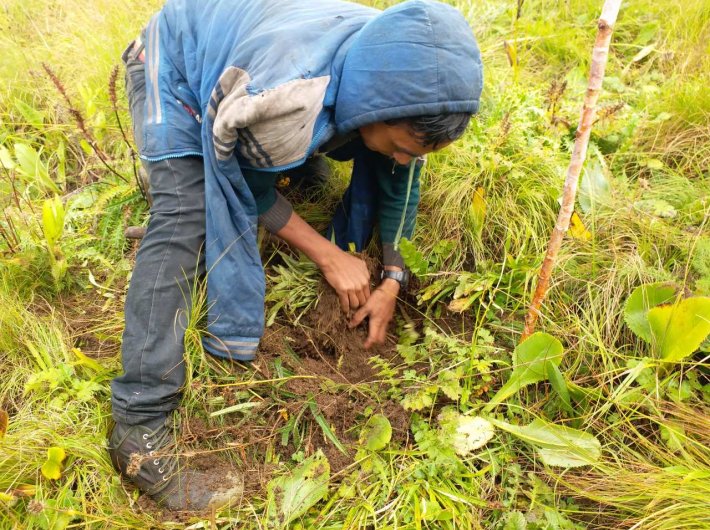TRAFFIC report about the essential but invisible trade: India among the top exporters
Wild plant species used in herbal treatments of Covid-19 are set to come under heightened harvesting pressure, as a result of both increased demand and more people turning to wild harvesting as an alternative source of income during times of high unemployment and economic crisis, says a new TRAFFIC report.
From around the world, there are reports of herbal products containing wild plant ingredients being used to prevent and treat COVID-19 in South America, Africa, Europe, USA, and Asia, the organisation said in a press release from Cambridge on Thursday.
In China, official traditional Chinese medicine (‘TCM’) formulations used in the Covid-19 response utilise over 125 plant species, a selection of them wild harvested in China and beyond. They include Liquorice root (Glycyrrhiza spp), a protected species in parts of its Chinese range and several species whose international trade is regulated under the Convention on International Trade in Endangered Species of Wild Fauna and Flora (CITES) such as ginseng root Panax spp, Chinese Agarwood Aquilaria sinensis, and Golden Chicken Fern Cibotium barometz.
“Humankind’s dependence on wild plants for essential health care and well-being has never been more apparent than during the current Covid-19 pandemic,” said Anastasiya Timoshyna, TRAFFIC’s senior programme coordinator – sustainable trade, and co-chair of the International Union for Conservation of Nature (IUCN) Medicinal Plant Specialist Group.
“However, there is a complete lack of attention to the issues of sustainability in wild plant supplies.”
The new report, ‘The Invisible Trade: Wild plants and you in the times of COVID-19 and the essential journey towards sustainability’, draws attention to the economic, livelihood and conservation importance of the trade in wild plants alongside issues of the sustainability of supplies.
Around 26,000 plant species have well-documented medicinal uses globally. Around 3,000 of them are traded internationally, the majority (60–90%) believed to be wild-collected, says the report. But more than one in ten of the 19% of the species whose threat status was been assessed are at risk of extinction in the wild according to IUCN.
The minimum estimated value of the global trade in medicinal and aromatic plant species has almost tripled in recent years (from $1.3 billion in 1998 to $3.3 billion in 2018), according to the latest available UN Comtrade data. The world’s top exporters are China, India, Germany, USA and Hong Kong SAR, while the USA, Hong Kong SAR, Germany and Japan are the top importers.
The long-term availability of plant ingredients to support human health – through medicines, food and well-being products – is dependent on prioritising the conservation and sustainable use of the source species. The report identifies priority actions and recommendations to consumers, businesses, governments, as well as conservation and academic stakeholders.
Biodiversity conservation is critical in the ongoing preparation of the post-2020 Global Biodiversity Framework, and the sustainable and equitable trade in wild plant resource has the potential to provide a conservation and livelihoods “win-win” scenario.
Many common consumer products — herbal remedies, food, drink, cosmetics, supplements, and even furniture — come from wild harvested plants. Since 2008, TRAFFIC has partnered with the FairWild Foundation to promote the sustainable use of wild plant ingredients by applying the FairWild Standard throughout the herbal products supply chain.
Next week (June 22-26) is FairWild week, an annual online event to raise awareness about the importance of sustainable and equitable trade in wild plant ingredients. Taking part will be the FairWild Foundation and TRAFFIC alongside businesses such as Traditional Medicinals, Pukka Herbs and Neal’s Yard Remedies, whose products include several with FairWild certified ingredients, as well as educational and conservation organisations, including the Sustainable Herbs Program of the American Botanical Council, Botanic Gardens Conservation International, and WWF.
“Next week is a celebration of wild plants, the FairWild approach, and the tangible benefits that sustainable use brings to impoverished harvesting communities, to businesses responding to the rising consumer demand for sustainably sourced products and for conservation of the wild plants themselves. We hope you will join us on social media using the hashtag #FairWildWeek to shed light on this invisible but essential trade and support calls for action by businesses, governments and consumers,” said Timoshyna.
